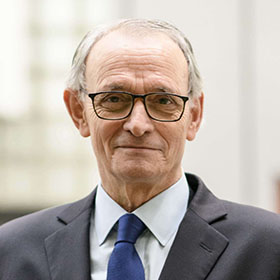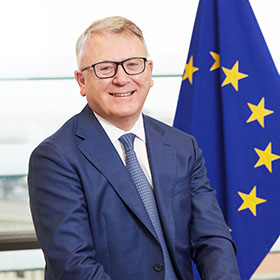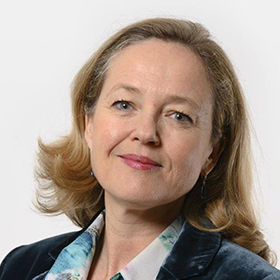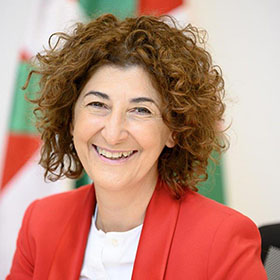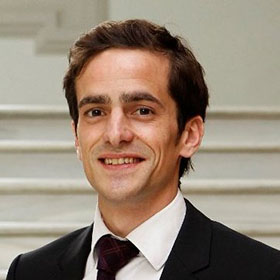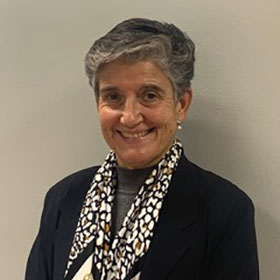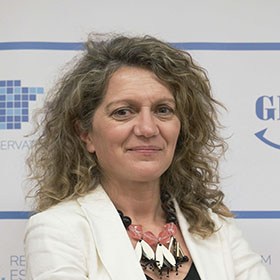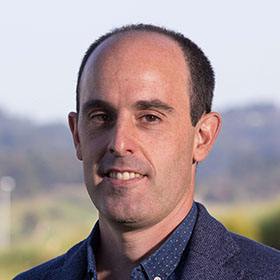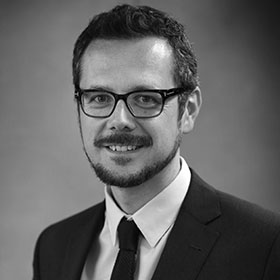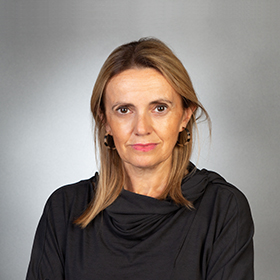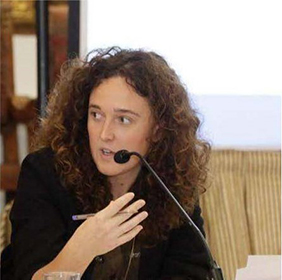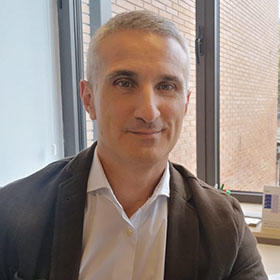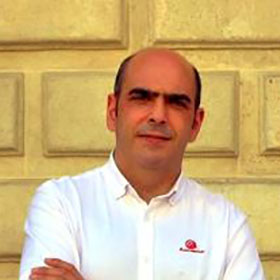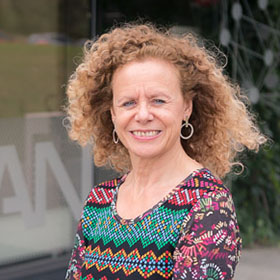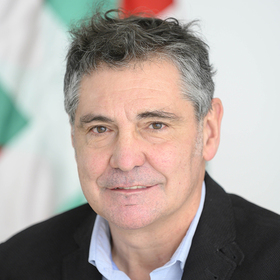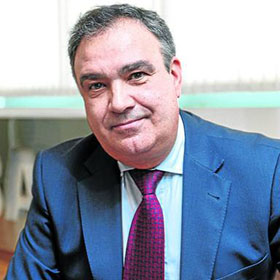IV Employment Congress 2021
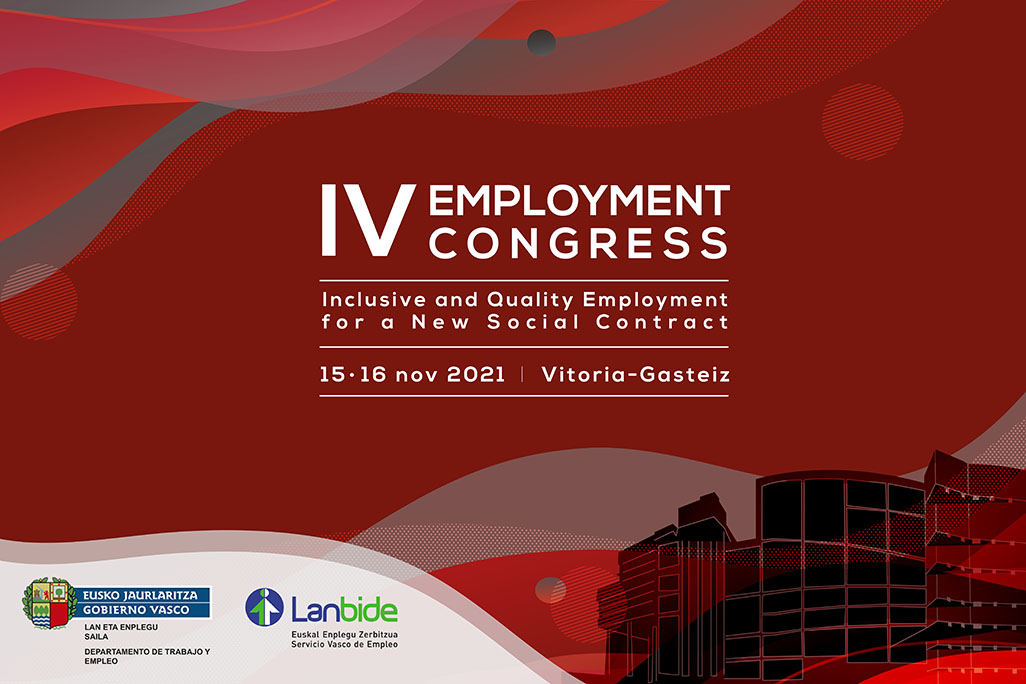
The Basque Country is no stranger to the profound global transformation of the economic system, characterised by energy, environmental, demographic, socio-health and digital transitions, which are already having direct implications on employment and, above all, on the type of employment that is being generated and will be generated in the near future.
In this context, and from the conviction that the emergence from the deep crisis that COVID 19 has generated must be fair, not merely to return to where we were but to build a better and more cohesive Basque Country, the Department of Labour and Employment of the Basque Government began a process in 2020 to improve the Public Employment Service and to build an innovative, efficient, inclusive, and effective Basque Employment System. The goal is to respond to the new requirements of the labour market and to the needs of workers (employed and unemployed) to maintain or gain access to employment. Employment which, under the Basque Employment Strategy 2030, is approached in terms of quality and inclusion, in line with the United Nations 2030 Agenda and with the European Pillar of Social Right set out in the European Employment Strategy.
To be able to consider, discuss and learn from the experiences of those around us, we will be holding the IV Employment Congress on 15 and 16 November, in which we will have experts from the professional sphere, public policy and academia who are leaders in the fields of employment, entrepreneurship, innovation in public policy, economy and inclusion.
I would like to invite you to participate in the Congress and collaborate in the social contract that will lead to the construction of an inclusive, egalitarian, and quality Employment System.
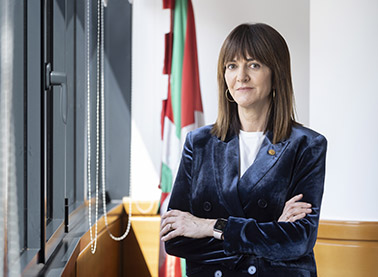
Idoia Mendia - Second Deputy First Minister of the Basque Government and Regional Minister of Labour and Employment

The IV Congress, from the perspective of the Basque Employment Strategy 2030, is focusing on “Inclusive and quality employment for a new social contract”. It will be divided into two days dedicated to considerations, knowledge, discussions and contrasting ideas by leading figures in the fields of employment, entrepreneurship, innovation in employment policies, economy, inclusion... and will address the following challenges/topics:
- Quality and inclusive employment in a competitive and globalised economy.
- Post-pandemic socio-economic recovery.
- Digital-technological, ecological and demographic transformations and transitions: net employment balance and active employment policy requirements.
- Innovations in employment policies: strategies, methodologies and instruments for employment and entrepreneurship.
- Draft law on the Basque employment system: working towards the governance, effectiveness, and efficiency of the Basque employment system.
- Employment by 2050.
Simultaneously, at the same venue, the LANBIDE-Basque Employment Service will be holding the Merkalan Job Fair, thereby promoting synergies between the two events.
Whereas the III Employment Congress 2020 hinged on the keyword "BUILDING", this year it will hinge on terms such as "PATH, ROADMAP OR STRATEGY". Last year we laid the foundations of the roadmap for building an inclusive, participatory, and people-centred Basque employment system; now we are setting it in motion with strategies, instruments, and resources to advance towards the goals set.
Our "compass", the Basque Employment Strategy 2030. The "roadmap" in the short term, the Strategic Employment Plan 2021-2024. Our "tool", Lanbide Hobetzen. The "playing field", the future Basque Employment System Act as an expression of the governance, efficiency, and effectiveness of the system. This all takes place within the framework of the Spanish and European strategies to promote economic activation and quality employment.
The slogan of this Congress is "Inclusive and quality employment for a new social contract" because we understand that the main challenge is not only to generate more employment but also to ensure the conditions for the full inclusion of all people. It is about finding the necessary balances to make this possible in a competitive and globalised economy.
The search for solutions and a consensus to this end will be essential to update and renew the social contract.
With these premises in mind, the papers and round tables will address the following topics:
 1. Consensus and pathways to quality and inclusive employment in a competitive and globalised economy
1. Consensus and pathways to quality and inclusive employment in a competitive and globalised economy
Quality of employment as a factor in the quality of life versus short-term employment, underemployment, instability, lack of work-life balance. Improving the quality of employment and its positive impact on the economy and the demographic challenge.
The implications of quality employment for business competitiveness and economic growth. Impact and socio-economic viability of employment quality indicators, effects on generating employment...
 2. Post-pandemic socio-economic recovery.
2. Post-pandemic socio-economic recovery.
Diagnosis on employment and expectations from a current and prospective analysis in a short-term recovery scenario (2-3 years). Is it possible to return to the pre-pandemic situation? In what timeframe? How? Standard lines of action and innovative measures.
 3. Digital-technological, ecological and demographic transformation and transition: net employment balance and active employment policy requirements.
3. Digital-technological, ecological and demographic transformation and transition: net employment balance and active employment policy requirements.
Expectations and deadlines for implementation in our business environment and effective impact on the labour market. Taking stock of the impact of change on current employment: More or less employment? What kind of employment? New emerging professional profiles and new training, activation and labour market insertion needs.
 4. Innovations in strategies, methodologies and instruments for employment and entrepreneurship.
4. Innovations in strategies, methodologies and instruments for employment and entrepreneurship.
Identification of inclusive innovations in guidance, training, and support processes for labour market insertion in order to define scalable strategies, methodologies and instruments. An approach that transcends group-based approaches (gender, age, minimum income...) and focuses the intervention on the singularity of cases and the distance of people from the labour market.
Assessment of entrepreneurship support programmes identifying successful scalable actions within the framework of active employment policies.
 5. Draft law on the Basque employment system: working towards the governance, effectiveness, and efficiency of the Basque employment system.
5. Draft law on the Basque employment system: working towards the governance, effectiveness, and efficiency of the Basque employment system.
Presentation of the preliminary results of documentation, considerations and participation for the groundwork that will support the regulatory framework of the future employment law, to be developed in 2022.
 6. Employment by 2050.
6. Employment by 2050.
Looking beyond EVE 2030. Prospective analysis of employment arising from the studies of the National Outlook and Strategy Office of the Presidency of the Spanish Government.
The two days of knowledge, considerations and participation will end with a panel discussion to share conclusions on the content programme. The panellists will be the people who make up the scientific committee of the Congress. This group of experts has collaborated with the Vice-Ministry of Employment and Inclusion in the conceptual design, development, and organisation of the event.

Monday 15 November
9.30 • 10.00. Institutional welcome and presentation of the Congress.
Gorka Urtaran Agirre. Mayor of Vitoria-Gasteiz.
Cristina González Calvar. Second Assistant Deputy General and Deputy for the Promotion of Employment, Trade and Tourism, and Regional Administration of the Provincial Council of Álava.
Idoia Mendia Cueva. Second Deputy First Minister of the Basque Government and Regional Minister of Labour and Employment.
10.00 • 10.40. Business Competitiveness, Economic Growth and Quality Employment.
Nadia Calviño. First Vice-President of the Spanish Government and Minister of Economy and Digital Transformation.
10.45 • 11.15. Employment, Inclusion and Quality of Life.
Nicolas Schmit. EU Commissioner for Jobs and Social Rights.
11.15 • 11.45. Coffee break.
11.45 • 12.15. Employment and social contract. What employment and for what social contract?
Antón Costas. President of the Economic and Social Council of Spain.
Employment and social contract (PPTX, 1 MB)
12.15 • 13.30. Round table discussion. Quality and Inclusive Employment in a Competitive and Globalised Economy.
The Basque Country's Social Dialogue Round Table. Confebask, UGT Euskadi, CCOO Euskadi, Deputy Regional Minister for Employment.
Moderator: Iñigo Calvo Sotomayor. Professor and Researcher, Deusto University.
13.30 • 15.00. Coffee break.
15.00 • 15.30. Post-Pandemic Employment: Short-Term Impact and Challenges for Recovery.
Sara De La Rica. Director of the Iseak Foundation and Professor of Economics at the University of the Basque Country (UPV/EHU).
Post-Pandemic Employment (PDF, 3 MB)
15.30 • 15.50. Digital and Technological Transition.
Isabel Neira Gómez. Lecturer at the University of Santiago de Compostela (USC).
Digital and Technological Transition (PDF, 1 MB)
15.50 • 16.10. Ecological Transition.
Mikel González – Eguino. Researcher at BC3 (Basque Center for Climate Change) and lecturer at the University of the Basque Country (UPV/EHU).
Ecological Transition (PDF, 2 MB)
16.10 • 16.30. Demographic Transition.
Josep Mestres Domènech. Economist of CaixaBank Research.
Demographic Transition (PPTX, 8 MB)
16.30 • 16.40. Questions from the audience regarding the 3 speeches.
16.45 • 17.45. Round table discussion. Cases and Applications.
Eneritz Zubizarreta. Co-founder and COO of Globe Testing.
Jokin Umerez Urrezola. Managing Director of Ternua.
Karmele Acedo. Manager of the SSI group, Integrated Social Services.
Moderator: Sara De La Rica. Director of ISEAK Foundation and Professor of Economics at the University of the Basque Country (UPV/EHU).

Tuesday 16 November
9.00 • 9.30. Innovations in Employment Policies. Activation, Training and Job Placement.
Jaime López Cossio. Director of technical assistance for the Cities for Employment Forum at the Forum for Society and Public Management. Expert consultant to the World Bank.
Innovations in Employment Policies (PPTX, 3 MB)
9.30 • 10.45. Round table discussion. Innovations, Success Stories and Scalability.
María Izquierdo. Analyst at the Independent Authority for Fiscal Responsibility (AIReF).
Maru Menéndez González-Palenzuela. Deputy Director General of the State Public Employment Service-SEPE. State Secretariat for Employment and Social Economy. Ministry of Labour and Social Economy.
Joseba Zalakain. Director at SIIS, Documentation and Studies Centre.
Javier Ramos. Head of Department at Lanbide, the Basque Employment Service.
Moderator: Fernando Consuegra. General Coordinator at Sartu Taldea. Lecturer at Deusto University.
10.45 • 11.15. Coffee break.
11.15 • 12.15. Round table discussion. Entrepreneurship and Intra-Entrepreneurship. Policy Evaluation and New Drivers of Development.
Fco. Javier Melero Rus. Lecturer at the University of Granada. Managing Director of Aumentur. Researcher at the Andalusian Institute for Research in Data Science and Computational Intelligence. Founder of AgeO 3D Tech.
Maylin Vergara. President of the Association of Migrant Women Entrepreneurs.
Susana Hormilla Martínez. Deputy Director Biolan Microbiosensores.
Moderator: María Saiz. President of the Basque Entrepreneurship Observatory EEB-OVE.
12.15 • 12.45. Fundamentals and Preliminary Guidelines for the Future Law on the Basque Employment System.
Alfonso Gurpegui. Deputy Regional Minister for Employment and Inclusion. Department of Labour and Employment of the Basque Government.
12.45 • 13.15. The Employment to Come: Employment Policy Challenges by 2050.
Sara Baliña. Deputy Director of the National Outlook and Strategy Office of the Presidency of the Spanish Government.
The Employment to Come (PDF, 1 MB)
13.15 • 14.00. Shared Conclusions.
Joseba Zalakain, Fernando Consuegra, Sara De La Rica, María Saiz, Iñigo Calvo y Javier Ramos./p>
Moderator: Fernando Fantova.
14.00. Closing Ceremony.
Francisco Pedraza Moreno. Director of Employment and Inclusion - Department of Labor and Employment - Basque Government

IÑIGO CALVO Professor and Researcher, Deusto University.
FERNANDO CONSUEGRA Lecturer at Deusto University.
SARA DE LA RICA Director of the ISEAK Foundation and Professor of Economics at the University of the Basque Country (UPV/EHU).
FERNANDO FANTOVA Social Consultant.
JAVIER RAMOS Head of the Lanbide Technical Department.
MARÍA SAIZ Executive Director of GEM Euskadi and President of the Basque Entrepreneurship Observatory EEB-OVE.
JOSEBA ZALAKAIN Director at SIIS, Documentation and Studies Centre.
The Department of Labour and Employment of the Basque Government, through the Vice-Ministry of Employment and Inclusion, is organising the IV Employment Congress on 15 and 16 November at the Europa Congress Palace in Vitoria-Gasteiz.
The venue is located on the most important avenue in the city, Avenida de Gasteiz, which provides easy access to the main roads into the capital of the Basque Country (from Madrid, Burgos, Bilbao, Pamplona, Zaragoza, and Donostia-San Sebastián).
There is a bus stop right next to the venue, a tram stop opposite, and the bus station (car park) is less than a 10-minute walk away.
Address: Avda de Gasteiz, 85, 01009 Vitoria-Gasteiz.
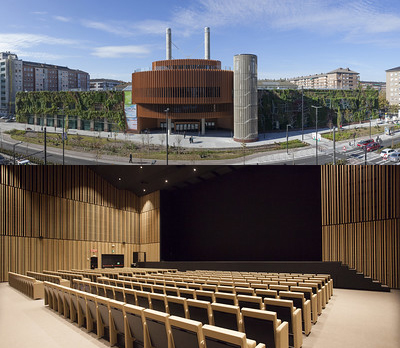
Simultaneously, at the same venue, the LANBIDE-Basque Employment Service will be holding the Merkalan Job Fair, thereby promoting synergies between the two events.
We invite you to join us.
To register please click HERE

